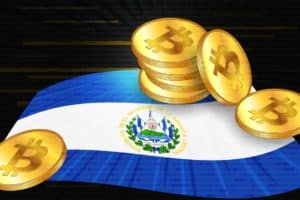El Salvador, the first country in the world to adopt Bitcoin as legal tender in 2021, is preparing to modify its Bitcoin policy to access a loan of 1.3 billion dollars from the International Monetary Fund (IMF).
According to what was reported by the Financial Times, the government of Nayib Bukele would be willing to adapt the regulatory framework on Bitcoin to meet the conditions requested by the international organization.
The objective of the IMF loan for El Salvador and the issue of the Bitcoin Law
The $1.3 billion loan represents a crucial element for stabilizing the public finances of El Salvador. The country faces significant economic pressure due to the increase in foreign debt and the need to maintain the trust of international investors.
The agreement with the FMI could also help improve the image of the Salvadoran government in global markets, mitigating the criticisms related to the controversial management of the national economy.
The adoption of Bitcoin as an official currency has generated strong debates globally. On one hand, it has attracted investments related to cryptocurrencies and fueled the ambition to transform El Salvador into a hub for financial innovation, while on the other hand, it has raised concerns about the fiscal implications and the transparency of the economic system.
The IMF, in fact, has repeatedly criticized the Bitcoin Law, considering it a risk to the financial stability of the country. Among the most controversial points are the lack of adequate controls to prevent money laundering and the intrinsic volatility of Bitcoin, which could threaten the government’s ability to manage public finances.
The changes planned to the policy on Bitcoin
To obtain the support of the IMF, El Salvador might introduce significant changes to the Bitcoin Law. Among the proposed options are:
•Greater regulation of the cryptocurrency market: the government could implement measures to monitor Bitcoin transactions and ensure greater transparency.
•Reduction of the obligatoriness of Bitcoin: currently, all businesses are required to accept Bitcoin as a form of payment, a provision that could be made optional to favor the consensus of citizens and international institutions.
•Strengthening of banking supervision: to mitigate the risks related to money laundering, the government could enhance the role of financial authorities in monitoring cryptocurrency transactions.
This opening of the Salvadoran government to a compromise with the IMF represents a possible turning point.
A financial agreement of this magnitude could not only stabilize the country’s economy but also encourage greater international confidence in El Salvador’s Bitcoin project.
However, the compromise could also scale back the initial ambitions of the Bukele government to position Bitcoin at the center of its economic strategy.
Bitcoin and economic sovereignty: a complex balance
The experiment of El Salvador with Bitcoin continues to represent a unique case study in the world. Although the country has gained global notoriety and attracted investors in the cryptocurrency sector, the long-term success of its policy will depend on the ability to balance innovation and financial stability.
The agreement with the FMI, if confirmed, would mark a new phase in the country’s economic policy, with greater attention to fiscal sustainability and the integration of cryptocurrencies into a more solid regulatory framework.
It remains to be seen if the modifications to the Bitcoin Law will be sufficient to meet the requests of the Fund without betraying Bukele’s initial ambitions.
El Salvador is at a crucial crossroads for its economic future. The dialogue with the IMF highlights the importance of finding a compromise between the adoption of bold innovations like Bitcoin and the need to ensure stability and international trust.
The planned legislative changes could represent the necessary step to keep the Bitcoin project alive and, at the same time, ensure vital support for the country’s finances.


